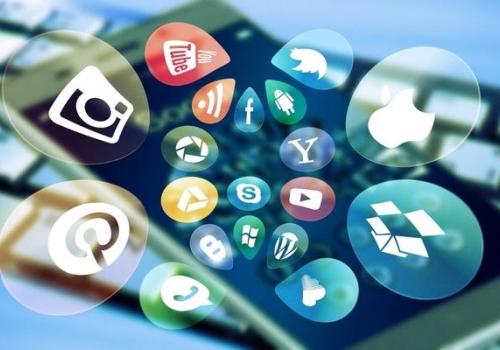What Happens if your Social Media Account is Hacked?

The meteoric rise of social media has changed the way we communicate and stay in touch with one another. A post here or a picture there can appear on millions of devices all over the world, almost instantly.
As a result, privacy should be a major concern for anyone using social media and there are many statistics that should get you thinking including the fact that over half of the world now uses social media (58.4 per cent), which equates to 4.62 billion people around the world. In just the past 12 months, a staggering 424 million new users have come online, while the average daily time spent using social media is 2 hours and 27 minutes.
Increasing just as quickly is the number of cyber criminals looking to steal money, steal information and steal identities. Privacy concerns around social media are not new, but never have the risks to individuals, commerce and government been higher.
Data is vulnerable
Users must consider and be aware of the ways in which their data is vulnerable. For most people, social media is a place where they can share political views, personal health information, engage in job, family and social activities, and keep on top of world news.
But across social media and e-commerce, more personally identifiable information is shared with corporations than you would ever knowingly (or willingly) share with your best friends. Think about that.
Sharing should mean caring
On average we spend about 30 per cent of our online hours on social media, and during that time we’re sharing more and more personal information. App developers then create third-party integrations which share even more of your data with even more third parties – all in the name of convenience and the user experience.
That’s all well and good if the data we’re sharing is properly managed and secured.

Personal data is big business
You may think there is nothing of value in your social media accounts, but what seems innocuous to you could be a gold mine for a hacker. The plethora of information we put online is becoming ever more valuable to cyber crooks for a variety of reasons including:
-
Forced shares or follows
-
Personal information and identity theft
-
Cryptocurrency scams
Higher stakes with higher followers
It goes without saying that the more followers you have, the more likely it is that you’ll attract interest from hackers - a good example is HBO. Back in 2017, the popular HBO TV series Game of Thrones had some 7 million followers which enticed a group called OurMine to take control of the main HBO accounts, including the Game of Thrones feed.
In fact, OurMine is renowned for hacking high profile Twitter accounts, having successfully hacked Facebook co-founder Mark Zuckerberg, Netflix, Google chief executive Sundar Pichai and Wikipedia co-founder Jimmy Wales.
And if you still think you’re a small fry, think again. Even without a huge following, if you yourself have social media accounts on platforms such as Twitter, Facebook, Instagram and Snapchat, you can’t prevent cyberattacks on those companies. What you can do is protect your personal data by controlling the information you share and post, but it’s surprising how few people do this.
Crypto Scams
These are slightly different, but something we all need to be aware if. One of Twitter’s biggest hacks involved the takeover of multiple high-profile accounts – people and businesses – and the accounts were then used to post messages requesting money in a Bitcoin scam. The hackers’ fake tweets appeared to generate Bitcoin deposits worth over $100,000 in just the first hour.
What happens if your social media account is hacked?
Maybe this has happened to you. Perhaps an unknown device has gained unauthorised access and logged into your Instagram account, or perhaps the password has suddenly changed unexpectedly, blocking you from accessing your own account.
If you are managing a vessel or business account, this can have serious repercussions. Perhaps the account has been hacked and sold on to a third party to spread spam or propaganda. A hacked account can be used to scam friends, colleagues and other businesses. It could even be held to ransom.
Here are some steps you can take if you think your account has been hacked:
-
Check you can still sign in with your usual password
-
Claim you forgot your password
-
Report a compromised account
-
Change your passwords
-
Turn on two-factor authentication
-
Check for any unusual activities
-
Remove all active sessions
-
Let contacts know you’ve been hacked
-
Tighten up the privacy settings
Four ways to prevent your social media accounts being hacked
-
Use unique, complex passwords for all your accounts with the help of a password manager.
-
Avoid signing in to your social media accounts on public Wi-Fi. If you do, use a VPN.
-
Always opt for two-factor authentication in your account settings.
-
Do not click on any suspicious links even if they are sent out by known contacts.
In summary, social media provides us with new and more exciting ways to share information with not only loved ones and businesses, but also provides an instant gateway to the world.
We share a wealth of detail online – sometimes too much - and don’t always secure our assets. The same principles apply in the physical world as they do in this newfound virtual world.
With your house or car, you take precautions not to display too much stuff, the doors are locked and surveillance maybe used to detect intruders. This is the mindset we all need to get into to better secure our data and businesses.




Post your comment
You cannot post comments until you have logged in.
Login to post a commentComments
No one has commented on this page yet.
RSS feed for comments on this page | RSS feed for all comments